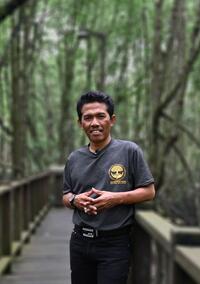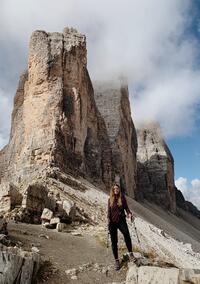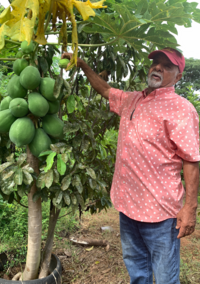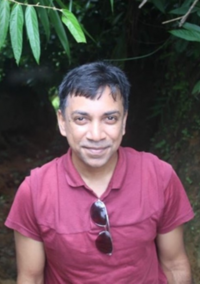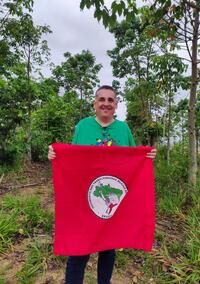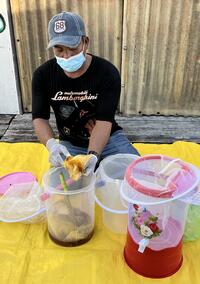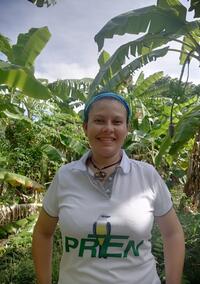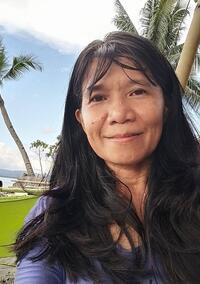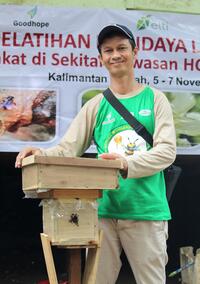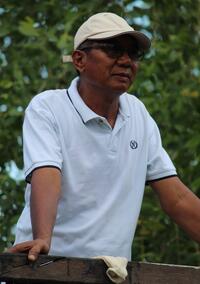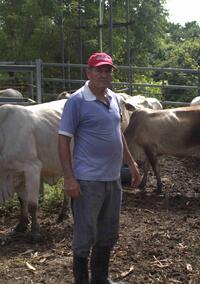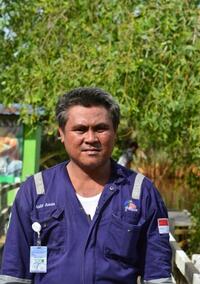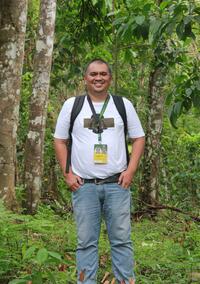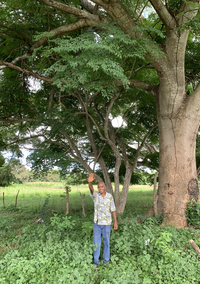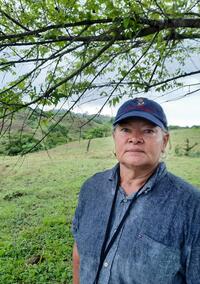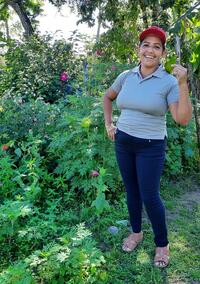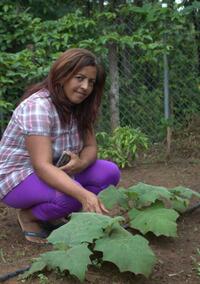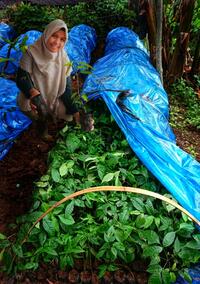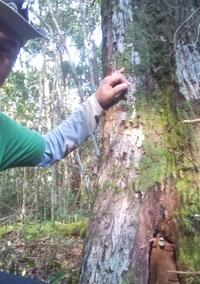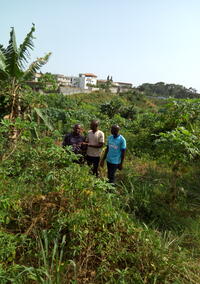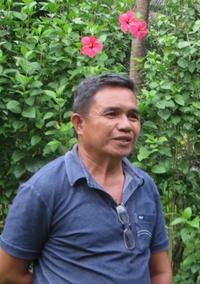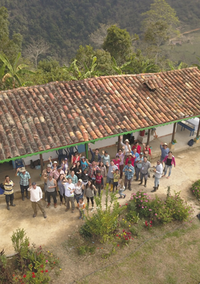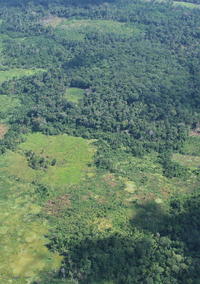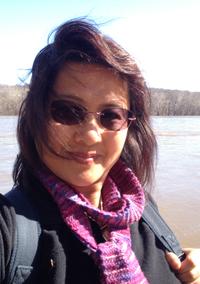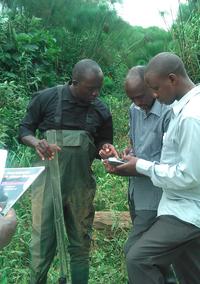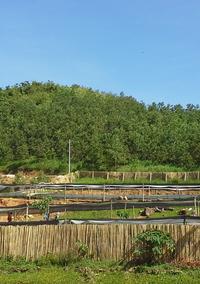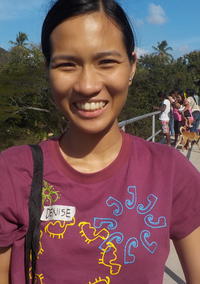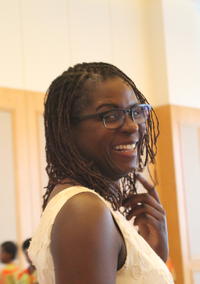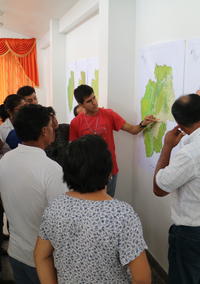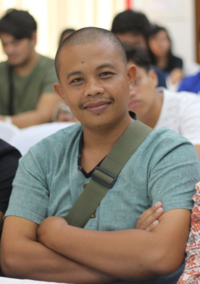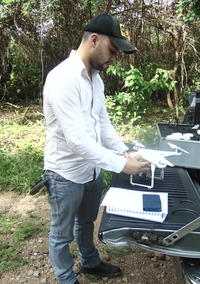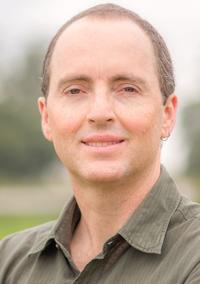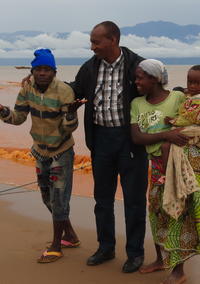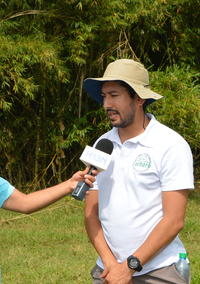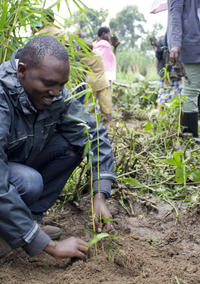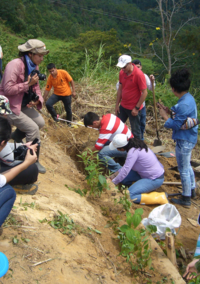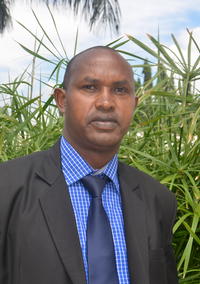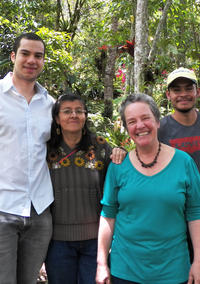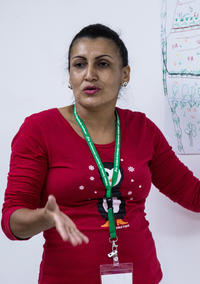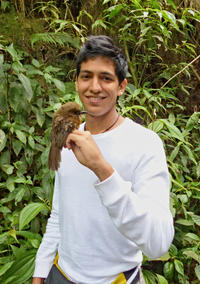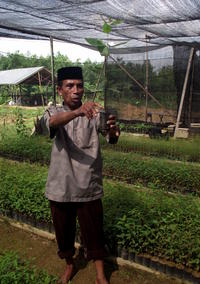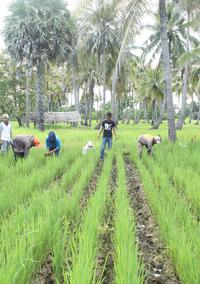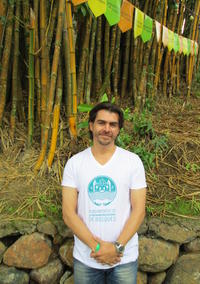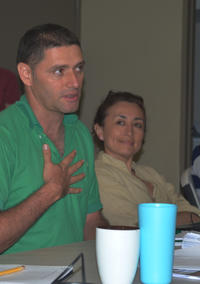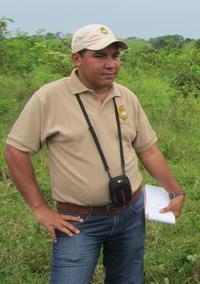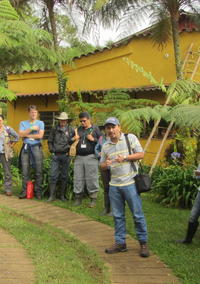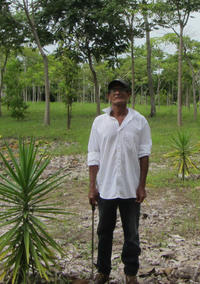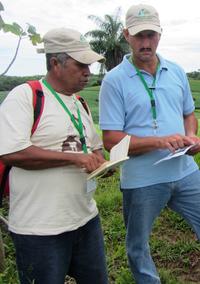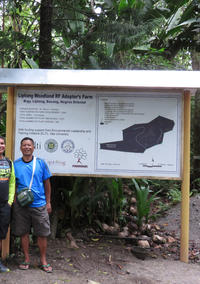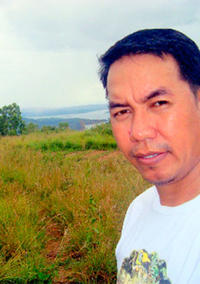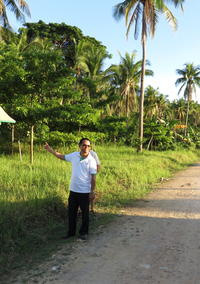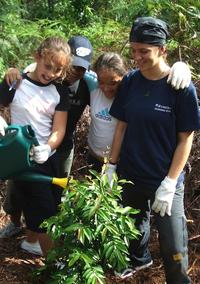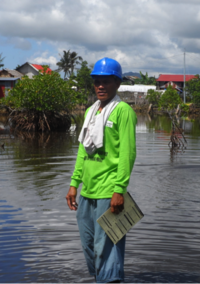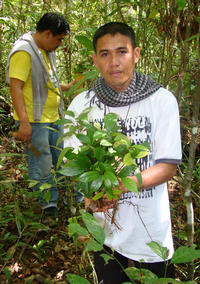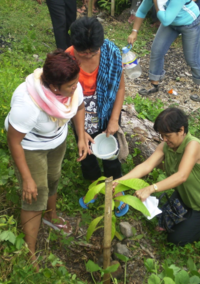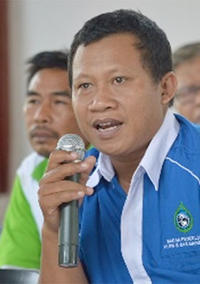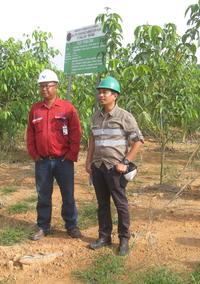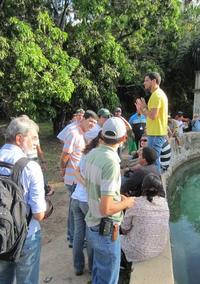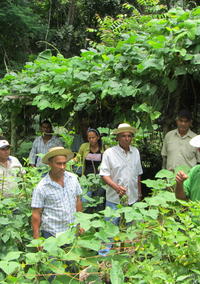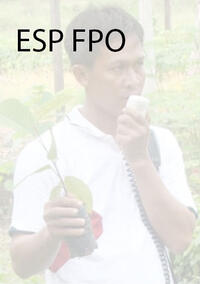You are here
Restoration Supports Colombia's Peace Process
Many groups have become involved, including: the Regional Autonomous Corporation of the Negro and Nare Rivers (CORNARE), a government environmental authority; the Eastern Catholic University; and the Alexander von Humboldt Biological Resources Research Institute (‘Humboldt’).
Two representatives from those institutions – David Echeverri López, Biologist with the Forests and Biodiversity Group of CORNARE, and Talía Waldrón, Adjunct Researcher at Humboldt – felt that an FLR approach offered the flexibility necessary to support Antioquia’s approximately 300,000 residents and advance their restoration and sustainable production goals.
FLR has strong potential for advancing peace in Antioquia. It promotes the recovery of traditional land-uses, the conservation of biodiversity, and a foundation of pride that this land is an asset for all Colombians’ prosperity.
David Echeverri Lopez
IUCN invited David and Talía to participate in the ELTI-IUCN online course Forest Landscape Restoration in the Tropics so that they could give the region’s FLR efforts a successful start with a ROAM assessment.
“After the course, I feel more confident in my understanding of the pathway to manage a ROAM assessment,” David explained. “I expect that our work here will serve as a reference for the rest of the country.”
Now, David and Talía are sharing what they learned in the course through workshops for the region’s ROAM process. They’re showing that restoration can benefit the landscape, local communities, and their agricultural and livestock production. In doing so, they’re proving to domestic and international funders that restoration efforts in Antioquia are not only feasible but effective.
“The workshops helped us gather information on the inhabitants’ livelihoods and priorities,” Talía adds. “That knowledge helps us to prioritize and communicate the co-benefits of restoration. We are now using the results of these workshops and other information gathered by CORNARE and Humboldt to add a social dimension to the mapping of restoration priorities.”
“With support from Humboldt and the Catholic University, CORNARE has gained recognition for its restoration efforts,” David says. “For us it is a source of pride and inspiration to be recognized for nurturing sustainable development in this time of new peace.”
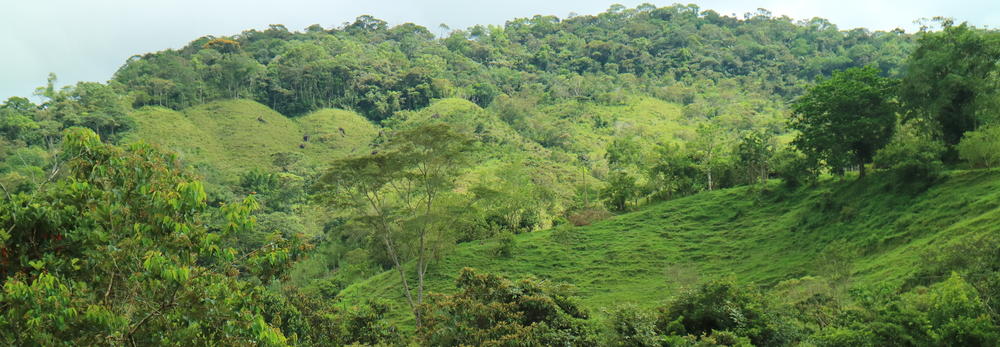
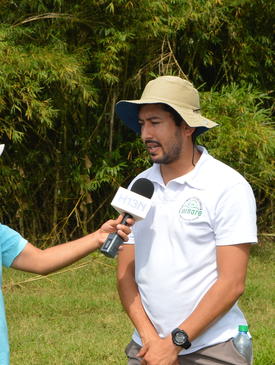
Acknowledgements
David and Talía would like to thank María Berrio and Carlos Betancur (CORNARE), Jorge Sierra, Mayra Gómez, Daniela Marín, Ma Cristina Franco, and Andrés Camilo Gómez (Universidad Católica de Oriente), Wilson Ramírez, Paola Isaacs, Wilmer Marín, Camilo Correa, and Vivian Ochoa (Instituto Humboldt), representatives from Antioquia’s tourism sector, and the communities of eastern Antioquia who shared their knowledge of their lands.







